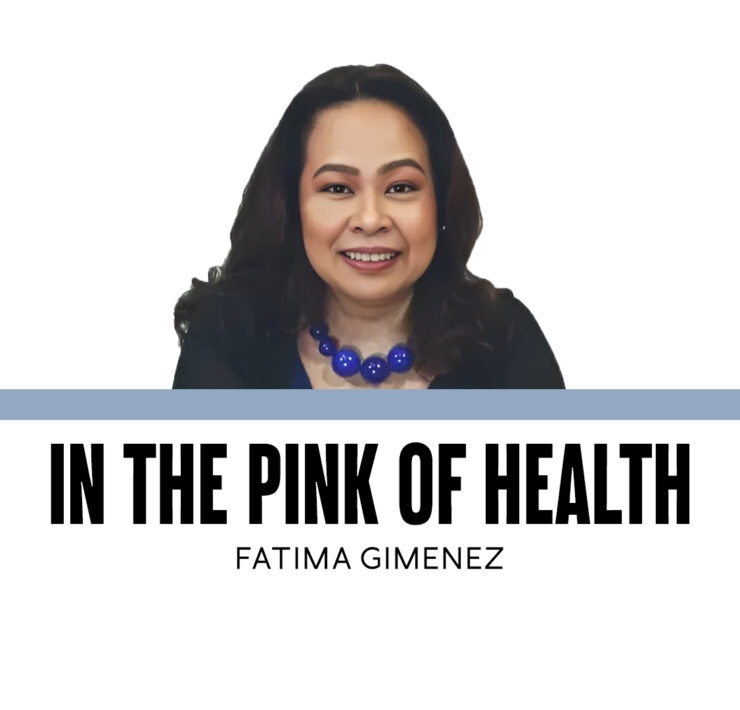Never say never

In the news lately has been the rise in COVID-19 cases in Thailand, Hong Kong, China, and Singapore. The XEC variant has been reported to be responsible for the majority of cases in Thailand. For easier visualization, think of it as a family tree having descendants and offspring. It is a result of the combination of genetic material from two different variants which evolved from JN.1—coming from the Omicron lineage and the predominant strain globally in the beginning of 2024. Reports of the XEC recombinant variant first emerged in Germany in August of last year and have since spread.
All of these raise a significant question: Is the Philippines at risk for an uptick in COVID-19 cases as well? According to recent news, the Department of Health has assured the public that it is closely monitoring the situation. It is important to remind everyone that we have the capability to perform genomic analysis.
So what do we need to know in order not only to be better prepared but also to avoid an unnecessary increase in anxiety levels? Is it easily spread?
The answer is yes, as transmission is through the respiratory route via aerosol droplets. Studies have shown that being in close proximity or being in a poorly ventilated area where there are infected individuals increases the chances of transmission. While the virus may have been detected in blood, stool, or body fluids, which are non-respiratory in nature, this has not contributed to the spread. Other possible routes though uncommon, include touching heavily contaminated surfaces and the inevitable transfer of the virus when one touches his eyes, nose, or mouth.
Is it dangerous?
One important lesson we’ve learned is that Omicron and its subvariants generally lead to milder disease compared to earlier strains that emerged during the pandemic. However, it is still important to note that these variants can be severe or even lethal for certain groups, including very young children, older adults, and individuals who are immunocompromised or immunosuppressed.
What are the symptoms?
The symptoms are similar to any COVID-19 infection, nonspecific, and resemble the common cold or flu. These may include but are not limited to having a runny nose, cough, fever, sore throat, headache, body malaise, nausea, diarrhea, loss of taste or smell, chest pain, or shortness of breath.
What is the incubation period and how long is one infectious?
The typical incubation period for the COVID-19 virus ranges from three to 14 days. However, available data indicate that some subvariants may have shorter incubation periods. The period during which an individual is infectious begins about two days before the onset of symptoms and lasts until the tenth day. Although the virus may continue to be shed after symptoms have resolved, this has not been linked to prolonged infectiousness.
Is there a chance of reinfection?
Immunity from previous infection and vaccination decreases over time and the emergence of new variants enables this possibility.
What are the preventive measures?
The current COVID-19 vaccines that are capable of providing protection against the variants that have emerged are not available in the country. Nevertheless, protection can still be afforded by strict adherence to personal hygiene, which includes handwashing, covering your cough or sneeze, using a sanitizer with at least 60 percent alcohol, or wearing a mask when necessary. If feeling ill and experiencing symptoms, do everyone a favor and stay at home until you are cleared by your physician to go back to work or your daily routine and avoid crowded places. Keep your surroundings clean and isolate if needed.
Have the necessary vaccinations for diseases that are vaccine-preventable, such as influenza.
Other interventions, such as the use of hydroxychloroquine and ivermectin, according to current data, have no protective role and are not recommended to be used to prevent COVID-19.
When do you seek consult? As a physician, I recommend that those who are at high risk for severe illness be tested and brought for consult soonest if there is a high index of suspicion that it might be COVID. Likewise, those with mild symptoms who may have a progressive course should seek early consult for prompt intervention.
As of now, based on my personal experience as a clinician, there has not been an increase in pediatric cases or consults since the beginning of the year. The Philippine Society for Microbiology and Infectious Diseases has released a statement, indicating that the country is not currently experiencing a trend similar to other Asian countries.
We all join them in calling for the public to remain vigilant, continuously observe and practice preventive measures, and adopt a healthy lifestyle to prevent respiratory infections.


















Making college access a lot more equal